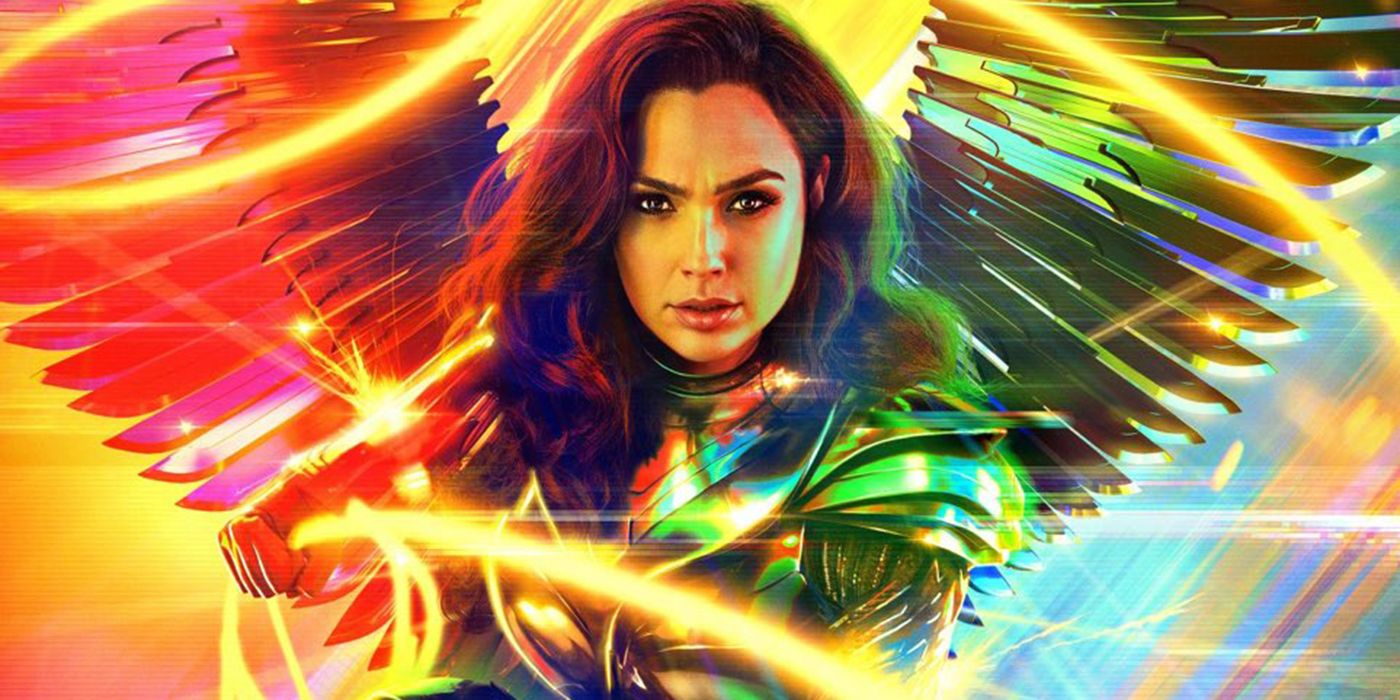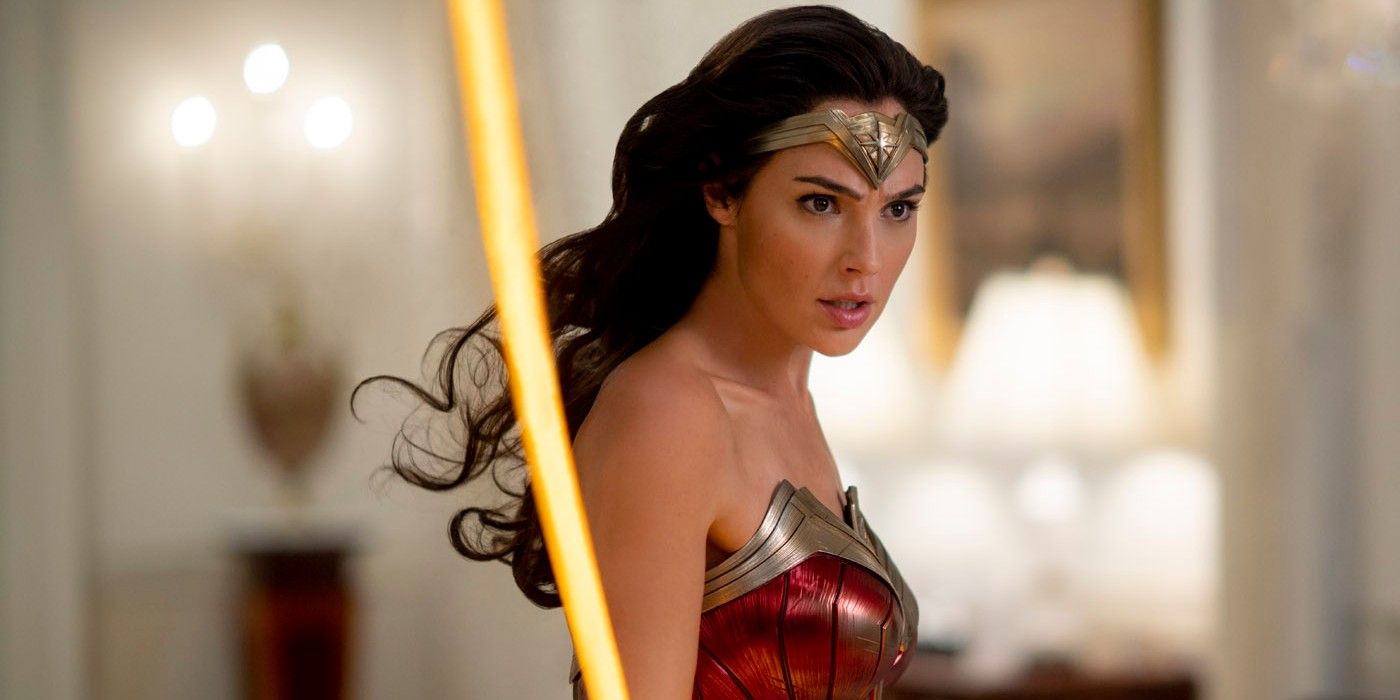Wonder Woman 1984 would have grossed $1 billion in revenue at the global box office; there is no question about it. Gal Gadot's debut as Diana of Themyscira grossed $821.8 million off a budget of $120-$150 million, and Gadot and the DC Extended Universe's Wonder Woman have only grown in popularity since Wonder Woman premiered in 2017. It would have been a guaranteed hit in normal times. But of course, these are not normal times.
Like Disney did with its choice to release Frozen 2 early on Disney+ at the start of the pandemic, the official statement from Warner Bros. on why it is releasing the film on HBO Max and in theaters on Christmas Day painted the decision as one of goodwill toward the fans. "The first and most important benefit is to the fans in the form of unprecedented choice from day one," WarnerMedia CEO Jason Kilar said in a statement. "To provide a comparable, a little over four million fans in the U.S. enjoyed the first Wonder Woman movie on its opening day in 2017. Is it possible for that to happen again this Christmas with Wonder Woman 1984 between theaters and HBO Max? We are so excited to find out, doing everything in our power to provide the power of choice to fans."
While the kindness Kilar and his company are showing fans should be commended, no one in Hollywood is willing to sacrifice $1 billion for the sake of appeasing a film's fanbase. Rather, facing no good options, WarnerMedia took the lesser of two evils, sacrificing a massive, short-term payday for the long-term growth of HBO Max.
While not unanimous, most media, technology and film/TV critics, analysts and moguls agree that streaming is the future. Box office numbers are down (and that was before the pandemic) in general, with event movies like Avengers: Endgame, Star Wars and Joker taking in much of the revenue year to year. Broadcast TV ratings have also fallen, as viewers flock to Netflix for a quick binge or FX and HBO for prestige content. This places a lot of pressure on HBO Max as a steady source of income for the company, pressure that is only heightened with the COVID-19 pandemic keeping theaters closed or at limited capacity across the globe.
Since its launch, though, HBO Max has seen mixed results. The streamer has surpassed its 2020 Q3 subscriber prediction with 38 million subscribers. However, that number includes everyone who has the ability to upgrade from HBO to HBO Max but has not done so yet. In reality, only 8.6 million people are using the new streamer, while over 28.7 million existing HBO subscribers have yet to activate their HBO Max upgrade. This does not even include the millions of customers who are unable to upgrade to HBO Max on their Roku devices, which does not yet offer the WarnerMedia service.
While this may not impact the company’s bottom line — HBO Max comes as a free upgrade to HBO customers, so there is no financial loss to the business — it does hurt the conglomerate in two key areas. The first is in public relations, as the company has to keep adding an asterisk to its quarterly numbers, which may impact shareholder’s and investor’s happiness. It could also push creative talent away to other services that can guarantee more viewers.
More importantly, though, the lack of HBO Max activations means no one is talking about HBO Max originals like Raised by Wolves or The Flight Attendant, or other exclusive content, including Titans, Harley Quinn and Friends. This keeps word-of-mouth about both the service and its content to a minimum and slows HBO Max’s efforts to secure new customers beyond those who are paying for it already.
With Wonder Woman 1984, WarnerMedia is hoping to spur a flood of activations and subscribers to HBO Max. The film's theatrical-level production and stellar cast will set it apart from most streaming films, and the positive impact of the first film will increase excitement for the sequel. From a marketing standpoint, Wonder Woman is an instantly recognizable property on the same level, if not above, Netflix's Stranger Things, Amazon's The Boys and Disney+'s The Mandalorian. It is easy to sell and will attract much media attention in the weeks before and after its release.
Even if Wonder Woman 1984 does not lead to the spike in subscribers and activations that WarnerMedia is hoping for, the film will almost certainly lead to an increase in downloads of the HBO Max app. A similar occurrence happened with Disney+ and Mulan. While the film did not bring in the numbers it would have had it been released in theaters, it led to a 70 percent increase in Disney+ app downloads. The numbers get even better when looking at Hamilton, which, unlike Mulan, was released on the House of Mouse's streaming service at no extra charge. The Broadway production increased Disney+ downloads by 79 percent.
Still, none of this explains why Warner Bros. did not just delay Wonder Woman 1984 to summer 2021 like Disney and Marvel did with Black Widow. While it is true that box office revenues are down, a movie like Wonder Woman 1984 is exactly the type of feature people are still showing up for. WarnerMedia could have easily released one of its many other less stable films it has on deck— such as Tom & Jerry, Godzilla vs. Kong or Space Jam: A New Legacy — in an effort to grow HBO Max.
None of those films have the broad reach or appeal of the DC hero, which could explain why it was chosen over the others. Some have speculated that WarnerMedia felt pressured to release Wonder Woman 1984 because its Trumpian villain may feel irrelevant in just a few months. Others point to the increasing marketing prices that come with each delay (the film had already been delayed four times before the streaming announcement) and the fact that, even with a vaccine, the public — domestic and international — may not be comfortable sitting in a theater come summer 2021. Whatever the reason, the short-term ramifications are already apparent. As for the long-term impact, well, as Kilar put it, that will depend on the choice of the fans.
Directed and co-written by Patty Jenkins, Wonder Woman 1984 stars Gal Gadot, Chris Pine, Kristen Wiig, Pedro Pascal and Natasha Rothwell. The film arrives in theaters and HBO Max on Dec. 25, while debuting theatrically in international markets starting on Dec. 16. The film will be available for a month on HBO Max in the U.S. included at no additional cost.



